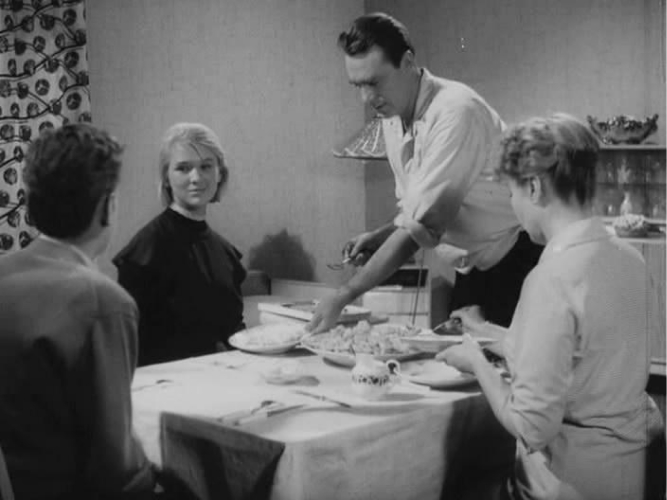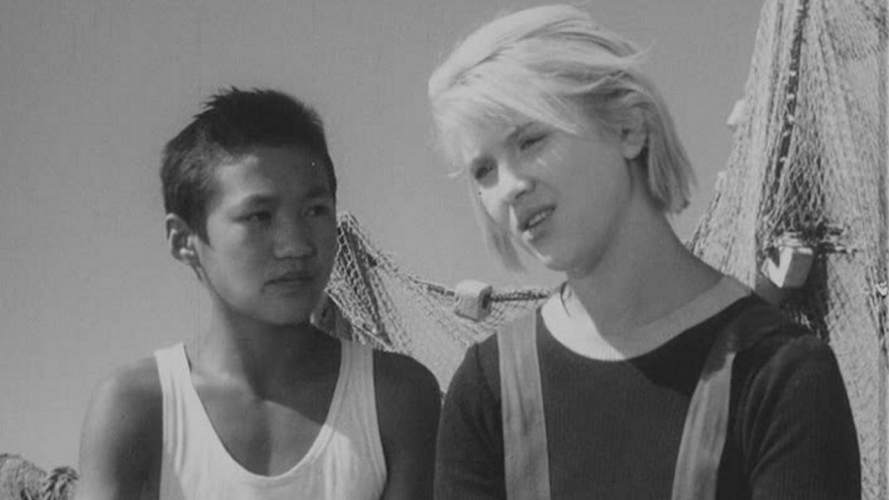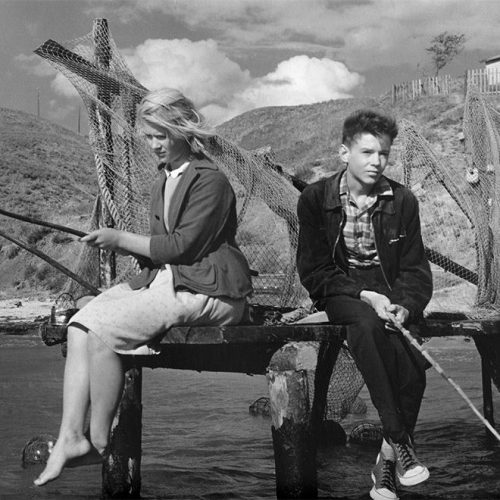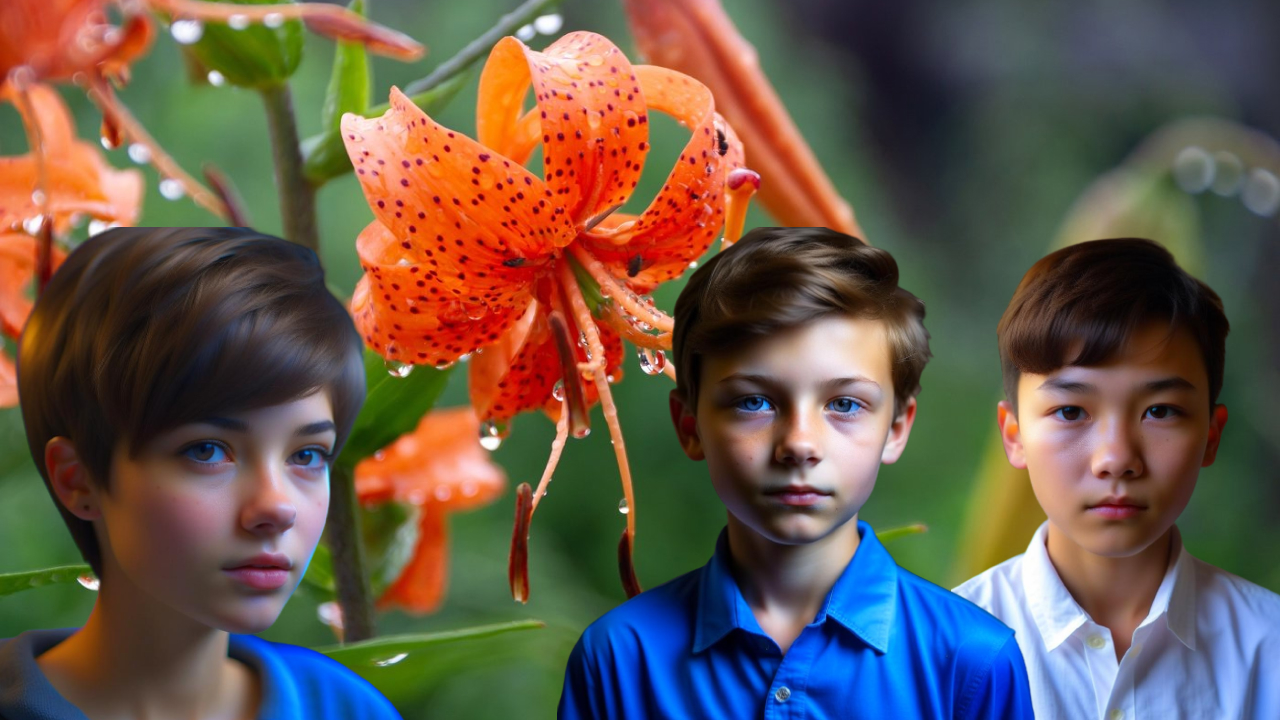Who among the older generation does not remember the prudent and faithful Filka, the contemplative girl Tanya, and the newcomer boy Kolya? “Wild Dingo Dog, or Tale of First Love” was written at the request of the publisher. The author was supposed to depict school life. Soviet literature always leaned towards finding positive heroes. In the work, we practically do not encounter negative characters. Even the envious girl Zhenya becomes the main character’s friend by the end of the novel. And the geography teacher, who portrayed Tanya in a negative light, is only mentioned in passing.
The author himself, Fraerman, said, “What kind of school story is this, no one could clearly understand. But they demanded it. There were many disputes, and I still could not understand what I needed to write about.” He wanted to show teenagers “something good, to show the charm of the first timid meetings, the birth of high, pure love.”
“What happened today? Did this river running to the sea inspire these strange thoughts in her? With what vague presentiment did she watch it! Where did she want to sail? Why did she need an Australian dingo dog? Why her? Or is it just her childhood slipping away from her? Who knows when it goes away!”
Fraerman took his daughter Nora as the prototype for Tanya, who grew up in the Far East, far from him and did not see him for fourteen years. The feelings that the heroine experiences when meeting her father, whom she has never seen, he projects onto his meeting with his daughter.
In the novel, we see the relationship between the girl’s mother and father. There is a supposition that Fraerman, who, like one of the main adult characters in the novel, left his wife with an eight-month-old child, also wanted to be loved by them all these years.
Tanya’s mother teaches her that no one is to blame if one stops loving. She keeps her father’s name untarnished for her daughter.
“There is a very strong psychological message in the book,” one participant notes, “many years later, the father comes, who was once in her imagination, and he begins to restore the relationship. It is normal that Tanya does not react to him as he would like in the first place. The girl is faced with the fact that she has to change and suddenly love her dad.”
“And at the same time, she needed a father,” the discussion begins.

Scene from a movie
Tanya and Kolya. Why doesn’t the girl notice Filka’s love, who even in the end “burned” her name on his chest with the sun? Probably because Filka was a childhood friend for the girl who was always there. And Kolya – he came from another world, from “Maroseyka.”
Most of the votes were given to Filka with his sincere love, open soul, and readiness to help.
From Fraerman’s life history, it is known that he served in the Far East for some time and knew the life of the Tungus people. This is why such a character was introduced into the story. Filka’s behavior is determined by the features of life in the taiga, where a person must help another in order to survive in these conditions himself.

Scene from a movie
Nothing is said about the parents of Tanya’s adoptive son’s father. But if we take the time of writing the story, which was 1939, we can make certain assumptions.
Tanya is alone in the adult world. Her mother is always at work. Love was not welcomed at school at that time. She had nowhere to go with her feelings. She coped with her feelings as best she could.
This is not just a story of first love; it is a story of a girl’s coming of age.
“Imagine how much happier these people are,” another participant says, “because everything has lasted for them. They have a long childhood, a long adolescence, they go through romantic relationships. Today everything is swift: childhood turns into puberty and then immediately into intimate relationships. And what’s next? Old age?”
“I was struck by the teacher,” a third participant notes. “How many teachers will we find who were so attentive to children? Who would notice the slightest changes in a child’s behavior?”
“The teacher, leaning on the windowsill, had been watching her for a long time. This girl, whom she loved more than others, began to worry her.
“Is she thinking about the little dances? Her wonderful memory has not yet faded, but her gaze is distracted, and last time in history, she only got a “good.”
Participants of the older generation, Belgians, said that in their time there was separate education. Acquaintance was only through parents. Infatuation was seen as an illness. Relationships started when young people began studying at universities.
Our meeting dragged on. It would seem that the book is for teenagers and about teenagers, but it caused so many emotions and memories.

Scene from a movie
The next literary salon will take place very soon, on September 20 at 7:00 p.m. This time, we have an invited guest, a theater and film actress – Elena Zakharova. Topic: “The 100th Anniversary of Rasul Gamzatov. Women’s Destiny in the Works of Classics.”
On October 19 at 10:30 a.m., we will gather to discuss “Tales of Belkin” by A.S. Pushkin.


